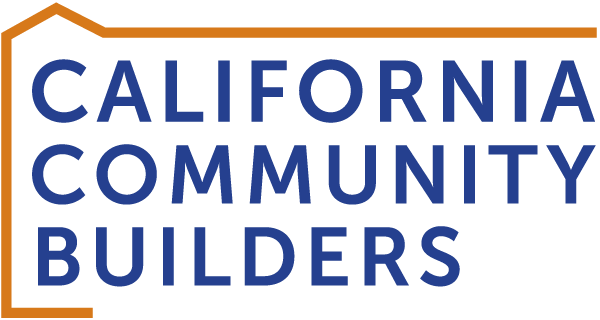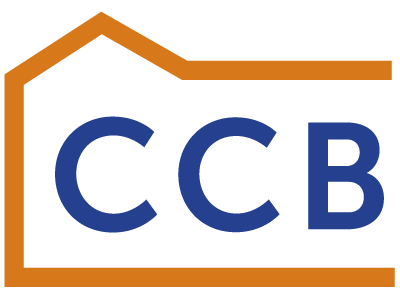The State of Homeownership Legislation: December 2023 Edition
This policy brief was authored by Alex Schafran (Schafran Strategies) and Julie Aguilar (California Community Builders). We welcome feedback on our publications and invite readers to reach out to Adam Briones (abriones@ccbuilders.org) to share your perspective.
CCB spends a lot of time tracking legislation that could impact homeownership opportunities as a wealth-building tool for communities of color, and earlier this year, we published our annual analysis of Homeownership Bills in California. We’re now back with an updated analysis examining which bills made it to the governor’s desk -- and which actually got signed. This year, Governor Newsom signed a housing package of 56 bills into law; each intended to address the various aspects of what the Governor’s office rightly described as California’s “decades-in-making housing crisis,” including legislation on new construction, tenant protections, and preserving affordable housing. Looking specifically at homeownership, this session was a mixed bag; the results yielded some good news and some not-as-good news.
CCB Sponsored Bills
CCB was a co-sponsor of Assemblymember James Ramos’ AB 1508.The bill, signed into law, will now elevate homeownership for first-time homebuyers as a priority in the Statewide Housing Plan, where it currently receives very limited attention.
CCB also co-sponsored Senator Anna Caballero’s SB 684, a bill to enable small-lot subdivisions on certain parcels to create new, more affordable homeownership opportunities. While the bill passed and was signed by the governor, we were disheartened that the bill was amended at the last minute to exclude parcels in single-family zones. CCB believes that all areas, including those within often higher-resourced single-family zones, should allow for new housing development, and we look forward to addressing this in the future.
Land Use Reform
Land-use reform bills benefitting homeownership made some important gains this year. The biggest news is that SB 423 and SB 4, two flagship streamlining bills, both passed and were signed by the governor. SB 423 (Wiener) extends and expands the SB 35 (Wiener, 2017) program to streamline housing in jurisdictions that have not met their Regional Housing Needs Assessments (RHNA) targets. SB 4 (Wiener), also known as the Yes in God’s Backyard or YIGBY bill, streamlines 100% affordable housing developments on faith-owned land through ‘by-right’ or ministerial approvals for eligible projects. Critically, owner-occupied housing is an eligible use in both SB 4 and SB 423.
Two additional bills we followed had mixed results. SB 450 (Atkins), which would have clarified and supported the enforcement and implementation of the historic duplex bill SB 9, was held in the Assembly and is now a two-year bill. SB9 is a critical tool to transform single-family homes into duplexes and triplexes and can be a key tool to expand informal and small-scale multifamily homeownership opportunities. We hope that Pro Tem Atkins will continue to move this bill forward in 2024. On the flip side, AB 1287 (Alvarez) was signed, and will add some additional carrots to the Density Bonus program while preserving affordable homeownership tenures as eligible types of uses.
Major Funding Bills
After two years of unprecedented surplus, the state faced a significant deficit in 2023, leading to challenges securing funding for new programs in the budget. All of the funding bills we tracked died in their second house.[1] These included SB 834 (Portantino), which would have authorized a $25 billion in general obligation bonds to finance down payment assistance programs and infrastructure finance programs; SB 440 (Skinner) which would have enabled all regions in the state to follow the Bay Area and Los Angeles’ lead and create regional housing finance agencies, and SB 255 (Caballero), which would have created the Community Anti-Displacement and Preservation Program (CAPP), a new program aimed at helping public and nonprofit sector organizations buy certain types of rental buildings and convert them into more stable housing tenures, including tenant ownership.
AB 1657 (Wicks) the Affordable Housing Bond Act of 2024, which would place a $10 billion bond on the March 2024 ballot, will likely keep moving forward in 2024 and still has a pathway to the November ballot.
Multifamily Homeownership (MHO) Bills
Bringing more multifamily homeownership (MHO) to California is one of CCB’s central goals, and it was a solid year for bills that get into the weeds of how multifamily homeownership works. AB 572 (Haney) will restrict the ability of homeowners’ associations to excessively raise HOA fees, a major issue for MHO homeowners, especially low- or moderate-income households.
AB 1033 (Ting) will allow ADUs to be sold separately from the main house, something which can be transformative for people looking for affordable homeownership opportunities, or for homeowners and extended families looking for ways to share ownership. We highlighted AB 1033 in our recent MHO report for this reason.
AB 469 (Allen) will exempt MHO tenures from a shameful piece of California housing law -- Article 34, a racist piece of the State Constitution passed in 1950 to require a public vote for public subsidies of ‘low-rent’ housing.
Community Land Trusts (CLTs), a key type of MHO, did not get help to open up the benefits of the welfare tax exemption, as AB 430 (Bennett) didn’t make it out of the Senate. On the other hand, AB 84 (Ward) will help CLTs stay qualified for subsidies even as incomes for their resident-owners change, and AB 671 (Ward) ensures that CLTs are eligible for CalHome programs to help them buy buildings.
Finally, a deeper-in-the-weeds bill, AB 288 (Maienschein), was signed by the governor. This bill will help co-op owners transfer their homes to their heirs without the complications of going through probate or having a trust. It may seem small, but it is these kinds of granular reforms that often make complex housing types like MHO possible.
Social Housing, Tribal Housing, Homeownership Plans and More
Finally, we tracked a series of interesting bills that each offered something to homeownership. On the social housing front, both AB 309 (Lee), which became a pilot program for a public developer in California, and SB 555 (Wahab) a social housing study bill, passed the legislature. While the governor signed SB 555, he vetoed AB 309. California will now study the possibilities of social housing, including some which could be ownership tenures, over the next three years.
On Tribal Housing, SB 18 (McGuire) would have established a Tribal housing fund to construct and rehabilitate homes for sale. It passed but was vetoed by the governor.
Both AB 394 (Hoover) which would have required some additional reporting on homeownership from state agencies, and SB 726 (Archuleta, Grove), which would have extended property tax exemptions to veterans with disabilities and their families, did not make it through the legislature.
Conclusion
The legislative landscape this year reflects a series of strides towards increasing homeownership in California. The passage of AB 1033 has marked a pivotal shift by adding potential for-sale housing stock to the state’s constrained housing supply. Additionally, the passage of SB 1508 will ensure that homeownership for first-time homebuyers gets prioritized in the Statewide Housing Plan.
Supporting the implementation of these two bills will be a key focus for CCB in the coming years. This will include CCB’s direct efforts as well as working to support organizations like Casita Coalition – the main driver behind the passage of AB 1033 – and our other partners statewide to make sure new laws become new housing opportunities. AB 1033 will require particularly careful focus, as small-scale multifamily homeownership is an essential piece of California’s housing and racial wealth gap puzzle.
While we understand the budget headwinds the state will face in 2024, we also look forward to next year’s policy and budget work on homeownership. Increasing homeownership attainment and availability and affordability will require multifaceted approaches and ongoing commitment. We hope that in 2024 the legislature will continue to advance legislation that addresses California’s housing shortage and increases homeownership opportunities for communities of color.
We made progress this year, but it's just a start. We need bold action and innovation, and we at CCB are committed to partnering with others who share this vision.
**********
Footnotes:
[1] Bills start in one house of the legislature, the assembly or senate, the move to the second house for debate and consideration.







